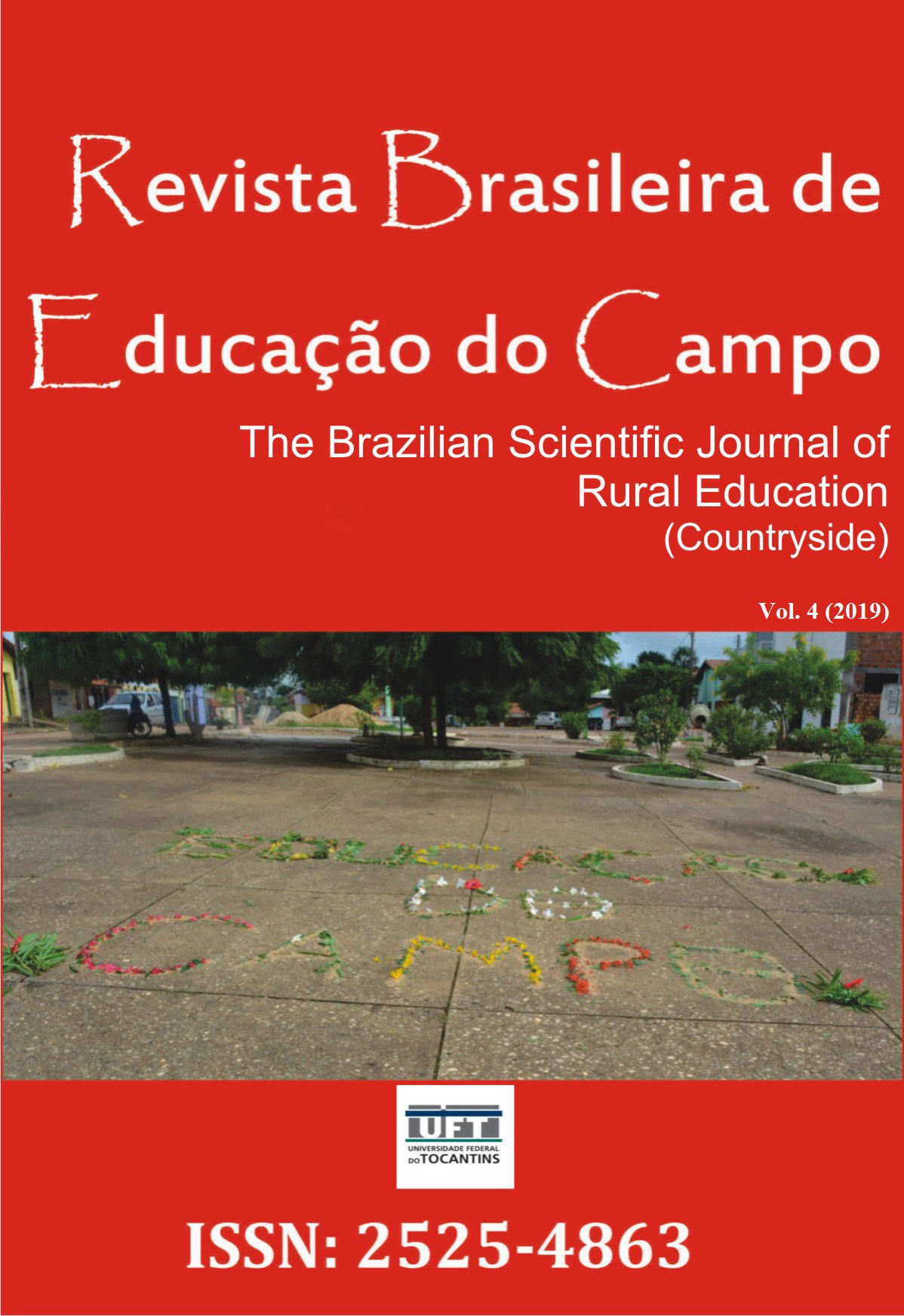Literacy of the countryside within the framework of the PNAIC: demands and challenges
DOI:
https://doi.org/10.20873/uft.rbec.v4e6419Abstract
ABSTRACT. This study discusses the literacy of the countryside from formative propositions the National Pact for Literacy in the Right Age (PNAIC). The problem question that guides this research is: what are the implications the PNAIC for the countryside literacy? As a methodological process, based on the discursive textual analysis (Moraes & Galiazzi, 2016), we carried out a documentary research in the training books of the Program that deal with the rural education and held reflective sessions with literacy teachers. As a theoretical contribution, start with the discussions about continuing teacher education (Nóvoa, 1992; Imbernón, 2010); literacy (Kleiman, 1995; Tfouni, 2010); rural education (Caldart, 2002; 2011); among others. The study leads the understanding that continuing education may be relevant process when the collaborative reflection of teachers on the literacy practice in the daily school life, pointing out the need for literacy practices in rural schools connect to the reality of the students, overcoming discrepancy between the proposed and the realized. It is also inferred from the study that the PNAIC propositions need to establish a closer relationship with the literacy practices schools, that they approach the educational demands and specificities of the students and the community to which they belong.
Downloads
Published
How to Cite
Issue
Section
License
Proposal for Copyright Notice Creative Commons
1. Policy Proposal to Open Access Journals
Authors who publish with this journal agree to the following terms:
A. Authors retain copyright and grant the journal right of first publication with the work simultaneously licensed under the Creative Commons Attribution License that allows sharing the work with recognition of its initial publication in this journal.
B. Authors are able to take on additional contracts separately, non-exclusive distribution of the version of the paper published in this journal (ex .: publish in institutional repository or as a book), with an acknowledgment of its initial publication in this journal.
C. Authors are permitted and encouraged to post their work online (eg .: in institutional repositories or on their website) at any point before or during the editorial process, as it can lead to productive exchanges, as well as increase the impact and the citation of published work (See the Effect of Open Access).















